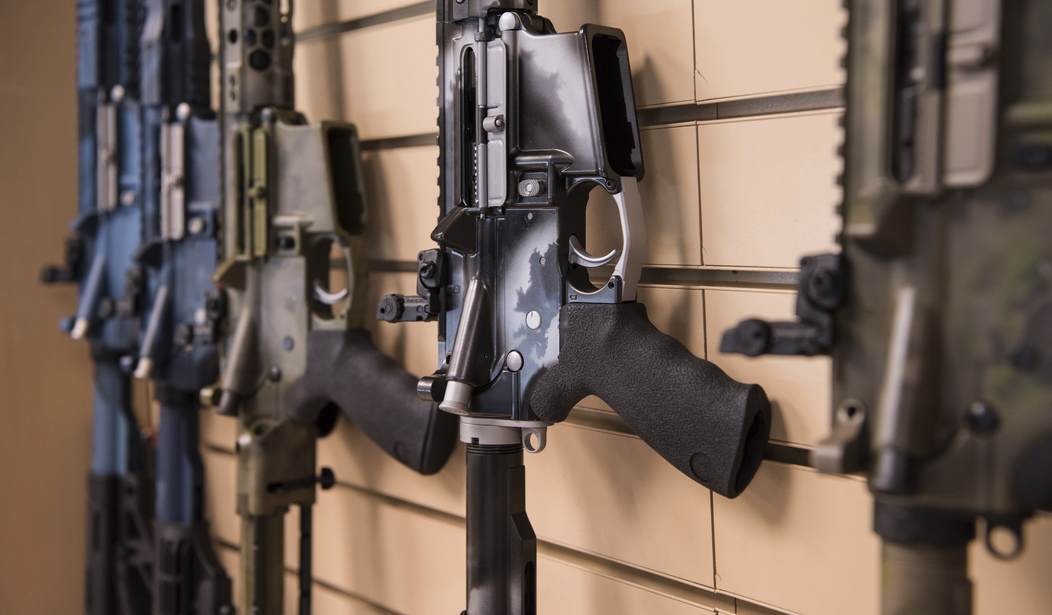Just a few weeks ago, the South African government led by President Cyril Ramaphosa unveiled a sweeping new gun control bill that would prevent residents from legally owning guns for the purpose of self-defense. The controversial measure was immediately criticized by gun owners, but that alone probably wasn’t going to be enough to derail the legislation.
After a week of riots, looting, and violence that have left more than 100 people dead, however, I’d say that the push to ban guns for self-defense has largely gone up in smoke.
The Durban township of Phoenix was bloody and it was deadly.
Elsewhere everything has been broken, stolen or burnt during several days of widespread looting and criminality that erupted in the wake of former president Jacob Zuma’s jailing for contempt of court last weekend.
It seemed hopeless until communities took it upon themselves to protect their shopping centres, the jobs that go with them, and their homes.
They became the human shields guarding businesses. Taxis were parked across a mall entrance in Johannesburg while manned barricades mushroomed around Durban to manage perimeter access in and out of neighborhoods.
With police stretched to the breaking point and little help from the government, citizens are protecting their communities with everything from baseball bats to rifles. On Friday, Ramaphosa said that federal troops will soon restore order, but many parts of the country are still seeing sporadic outbreaks of physical violence and property destruction.
More than 2,200 people have been arrested for theft and vandalism and 117 people have died, Khumbudzo Ntshavheni, acting minister in the presidency, said Thursday. Many were trampled to death when shops were looted, according to police.
The army rollout in KwaZulu-Natal is expected to restore order in the coastal province within a few days. An uneasy calm has been secured in Gauteng province, which includes Johannesburg, South Africa’s largest city and industrial hub.
In a sign of a return to stability, a strategic highway linking Durban and Johannesburg reopened Friday after being closed for a week, officials announced. South Africa’s unrest first flared at the Mooi River toll gate for the N3 highway where more than 20 trucks were burned.
The military will patrol the highway but drivers are warned to use the road with care. “It is vitally important to proceed with extreme caution and to stay alert at all times,” said the highway authority in a tweet Friday.
The military is also working to keep open the N2 highway, which links Cape Town to Durban. The highways are vital transport routes carrying fuel, food and other goods. The rail line to the strategic Indian Ocean ports of Durban and Richard’s Bay was also closed by the unrest, the state-owned transportation company, Transnet said earlier this week.
The violence, which erupted after supporters of former South African president Jacob Zuma rioted after he began serving a 15-month prison sentence for refusing to cooperate with a government inquiry into corruption in his administration, appears to be abating somewhat, at least in some parts of the country, but with Zuma’s supporters demanding his release from custody within the next two weeks, it’s far too early to declare that the worst of the unrest is over.
As Ramaphosa desperately tries to restore some semblance of order to the country, South Africans like Tim Hughes, spokesman for the South African Self-Protection Alliance, are pointing out the absurdity of banning guns for self-defense when the government is failing to protect citizens.
The current wave of criminality, looting and destruction that is sweeping parts of KwaZulu-Natal and Gauteng has exposed the inadequacy of the police to deal with violent crime and has propelled private citizens to place their own lives at risk to protect property and livelihoods. If passed into law, the FCA bill would in effect remove the final line of defence for law-abiding citizens whose lives are under threat from violent criminals while our country burns.
The state has an obligation to protect all of its citizens, but this duty is amplified with respect to the most vulnerable. In this regard South Africa’s global topping crime statistics demonstrate that the government is failing in its most fundamental duty and, if passed into law, the FCA bill will compound this failure.
South Africa already has very restrictive gun control laws, and as Hughes notes, some of the highest rates of violent crime on the planet. Even before Zuma’s supporters began their violent rampage, the idea of banning legal gun ownership in the name of fighting crime was silly. Now it appears downright insane.








Join the conversation as a VIP Member